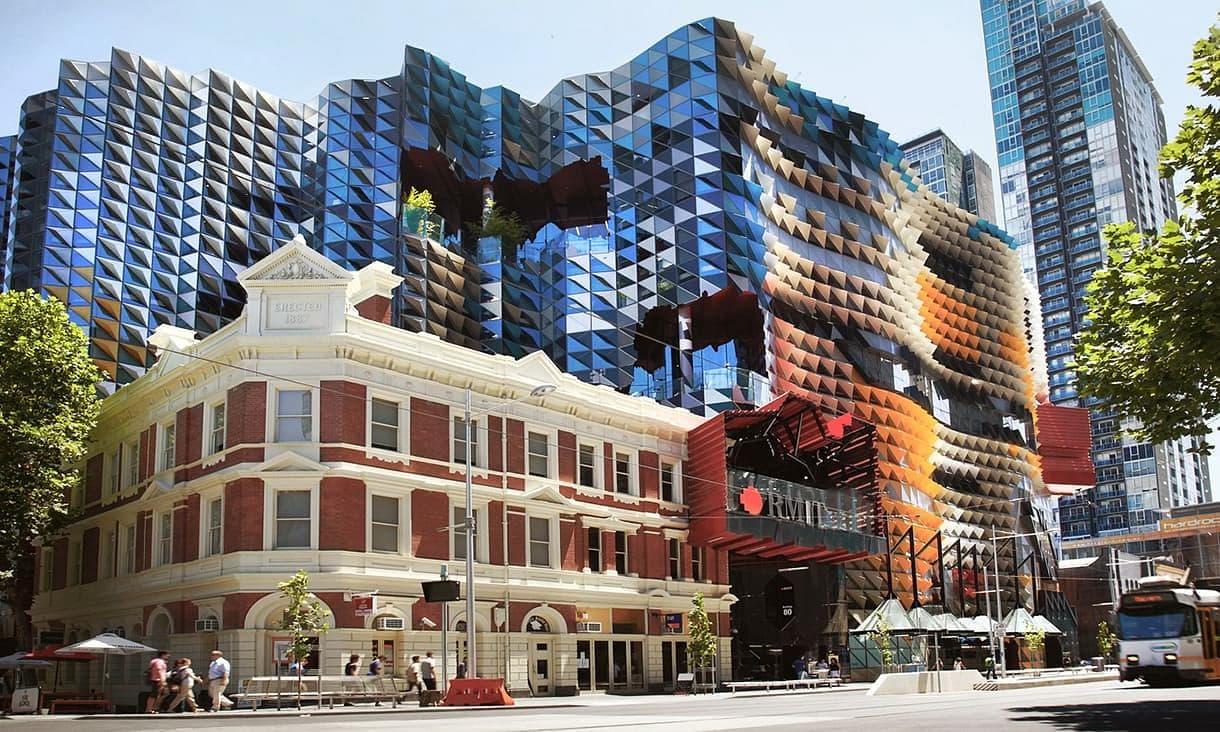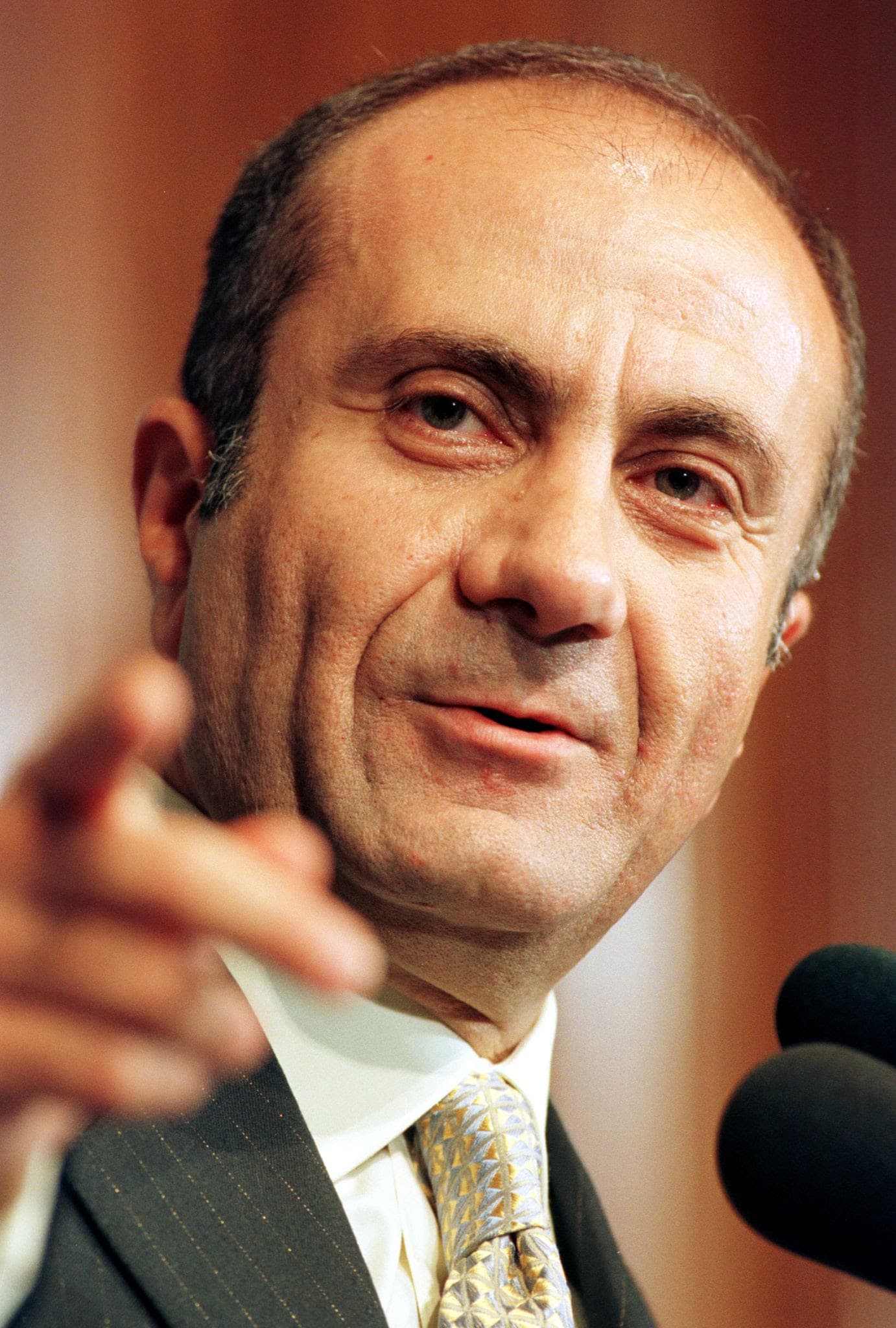

RMIT University
Melbourne, Australia
- Cost of LivingAU$ 36,696
- Tuition Fee FromAU$ 17,500
- Country Rank-
- Batch Strength32,743
- Global Diversity34%
- Gender Ratio52 : 48
Overview
About
RMIT University (officially known as the Royal Melbourne Institute of Technology) is a public research institution in Melbourne, Australia. Francis Ormond founded RMIT in 1887 as a night school that offered courses in art, science, and technology in response to the Australian industrial revolution. Prior to combining with the Phillip Institute of Technology to become a public university in 1992, it was a private college for more than a century.
On the northernmost point of Melbourne's famed Hoddle Grid, is where RMIT's main campus is located. In addition to a training facility located on the RAAF Williams base in the western suburb of Point Cook, it maintains two satellite campuses in the northern districts of the city, Brunswick and Bundoora. Moreover, it has a research facility in Hamilton, close to the Grampians National Park, and a training facility at Bendigo Airport in the Victorian city of Bendigo. It includes two branch campuses in Ho Chi Minh City and Hanoi, two training facilities in Da Nang, Mainland China, Hong Kong, Indonesia, Singapore, and Sri Lanka, as well as teaching alliances around Asia.
RMIT University’s acceptance rate stands at 22% with around 94,933 global students out of which 58,775 are undergraduate students, 19,064 are postgraduate students and 2,194 are doctoral students. It is also one of the wealthiest colleges in Australia, with an annual income of over A$1.5 billion. It is the best art and design institution in Australia and Oceania and is designated a five-star university by Quacquarelli Symonds (QS).
RMIT University Acceptance Rate
RMIT University has a 45% acceptance rate and it has a 36:1 student to teacher ratio. The student body of the university is diverse and international students attend the university from all over the world.
Ranking
QS World University Ranking 2024:
RMIT University has shown excellence by securing 251–300 spot on the global scale.RMIT is rated as a five-star university by the QS Global University Rankings in the following categories: research, employability, teaching, facilities, internationalisation, innovation, engagement, and specialisation. The university has the top art and design schools in Australia and Oceania, which was placed 15th globally for art and design courses in the 2021 QS Global University Rankings. In the 2016 - 2017 QS Top 50 Under 50 index of universities under 50 years old, the university is placed 16th globally and 3rd in Australia. The university was also ranked 55th out of 100 universities under 50 years old by Times Higher Education. Take a look at some of RMIT University’s rankings in 2022 & 2023 -
- 22nd in Times Higher Education World Impact Rankings 2022
- 301st - 350th in Times Higher Education World University Rankings 2023
- 55th in Times Higher Education Young University Rankings 2022
- 209th in the US News & World Report Global Rankings 2023
- 17th in the US News & World Report Rankings (Australia and New Zealand) 2023
- 16th in the US News & World Report National Rankings 2023
Course Rankings:
Take a look at some of RMIT University course rankings below -
Law Courses 2022
- ARWU - Law: #201 - 300
- QS - Law: #301 - 340
Computers Courses 2023
- Times Higher Education - PG Computer Science: #251 - 300
Science Courses 2022 & 2023
- QS - Pharmacy & Pharmacology (2022): #351 - 360
- QS - Physics and Astronomy (2022): #201 - 250
- QS - Biological Sciences (2022): #351 - 400
- QS - Mathematics (2022): #301 - 250
- Times Higher Education - Life Sciences (2023): #251 - 300
- Times Higher Education - Psychology (2023): #251 - 300
Humanities Courses 2022 & 2023
- QS - Communication and Media Studies (2022): #40
- QS - Arts & Design (2022): #15
- QS - Sociology (2022): #201 - 250
- Times Higher Education - Arts & Humanities (2023): #176 - 200
Business Courses 2022 & 2023
- Qs - Accounting & Finance (2022): #51 - 100
- QS - Global MBA (2023): #151 - 200
- Times Higher Education - PG Business & Economics (2023): #176 - 200
Engineering Courses 2022 & 2023
- QS - Architecture & Built Environment (2022): #31
- QS - Engineering & Technology (2022): #116
- QS - Mechanical, Aeronautical & Manufacturing Engineering (2022): #101 - 150
- Times Higher Education - Engineering (2023): #126 - 150
Medicine Courses 2022 & 2023
- QS - Medicine (2022): #401 - 450
- Times Higher Education - Clinical & Health (2023): #251 - 300
Year
QS Ranks
US News Ranks
2025
#123
-
2023
#190
#209
2022
#206
#209
Facilities
RMIT has three campuses, as well as locations in Australia, Vietnam, and Barcelona, Spain, where it operates a centre for research and industrial engagement. The following RMIT University facilities are available to students on the campuses -
- The university offers more than 100 clubs, groups, and collectives where students may network and learn new skills in areas like music, culture, politics, sports, and academic pursuits.
- To combine work life and wellness for students and staff at the university, there is a well-equipped gym known as City Campus Gym as well as a sports facility with facilities for both indoor and outdoor sports.
- The University recently opened the Swanston Academic Building and Design Center, which is furnished with top-notch amenities like a clinic, research space, and facilities for testing products.
Notable Alumni



Courses
Admission
RMIT University Entry Requirements
RMIT's degree programme admissions procedure is available online. Students must first select a course in their intended study level or study field. They must verify the minimal requirements for that specific course of study, such as English language proficiency tests such as IELTS, TOEFL, and PTE, academic entry requirements (country-specific equivalent requirements), pre-requisites, and selection tasks, after selecting a course. Once all of the prerequisites are met, individuals can apply and submit their online application together with all of the relevant documentation. The university has a global network of registered agents who can help with programme and visa application questions. Only a registered agent of the university should be used by students to apply. Students can apply through the Online Portal or through an agent with an application fee of AU$ 100. Here are some of RMIT University’s entry requirements listed below -
- Certified copies of academic transcripts (not required for current RMIT students applying to another programme at the university)
- Certified copies of all graduation certificates in both the original language and English (not required for current RMIT students applying to another programme at the university)
- Statement of Purpose (SOP)
- Evidence of English language proficiency such as TOEFL/ IELTS or equivalent
- Any documentation relating to selection tasks (pre-selection kits, folios, etc.)
- Letter of Recommendation (LOR)
- Copy of passport
- CV, work reference referee report, etc if applicable
- Australian Student Visa
RMIT University Fees
RMIT University fees for some of the top courses are listed below -
- MS in Data Science: AU$ 38,400 (per year)
- MBA: AU$ 48,000 (per year)
- MS in Nursing: AU$ 23,126 (per year)
- MS in Computer Science: AU$ 35,520 (per year)
- M.Eng in Mechanical Engineering: AU$ 43,200 (per year)
- MA in Interior Design: AU$ 44,160 (per year)
RMIT University Placements
The RMIT University Placements Job Portal enables students to look for employment or launch their careers through a variety of career platforms, including Career Hub, Future Edge, and Job Shop. These platforms not only provide international students in Australia job prospects, but also crucial professional counselling, direction, and training. Also, the university hosts career-related courses and gatherings that provide students the chance to network with people in their industry. The university has strong ties to and relationships with prestigious companies like Deloitte, BMW, Adidas, and L'Oreal that assist students in receiving an education that is relevant to the industry and achieving their career aspirations.
Depending on their degree of study, placement opportunities are also offered to students by the university. RMIT University is dedicated to ensuring that its students are ready to face any challenges in their chosen professional path and are prepared for the always changing workplace.
RMIT University English Proficiency Requirements
English Proficiency Tests are administered to students whose native or first language is not English or who have not completed a minimum of four years of English schooling. The following tests and minimum score requirements are accepted -
|
Tests |
Foundation Studies, Vocational Education & VCE |
Associated Degrees |
|
IELTS |
Score of 5.5 with no band score less than 5.0 |
Score of 6.0 with no band score less than 5.5 |
|
TOEFL iBT |
Overall Score: 50 Reading: 5 Listening: 5 Speaking: 14 Writing: 15 |
Overall Score: 60 Reading: 10 Listening: 9 Speaking: 16 Writing: 19 |
|
PTE |
A score of 42 with no communication band score less than 36 |
A score of 50 with no communication band score less than 42 |
|
Cambridge English (First) |
Overall score of 162 with a minimum score of 154 in any section |
N/A |
|
Cambridge English (Proficiency) |
N/A |
Overall score of 169 with a minimum score of 162 in any section |
|
Cambridge English (Advanced) |
Score of 162 with a minimum score of 154 in any section |
Sscore of 169 with a minimum score of 162 in any section |
Scholarship
Regardless of the program you are studying, there are several scholarship opportunities provided by the university as well as other organizations. With so many scholarships available now, overseas students can greatly lower the financial burden of studying in a new country. You can apply for scholarships to study at the RMIT University through UniScholarz. You can find the following types of scholarships based on your academic performance and financial situation:
-
Merit-based scholarships
-
Need-based scholarships
-
Country-specific scholarships
-
College-specific scholarships
-
Student-specific scholarships
Finances
Most international students are obligated to show proof of sufficient funds to obtain a visa. While some students may have the opportunity to make use of scholarships, not all students cut the eligibility to get a scholarship or a grant. Moreover, not all scholarships cover 100% of your study abroad expenses. At such times, most students resort to acquiring education loans to avoid the financial hassles associated with studying at the RMIT University. For Indian students, UniCreds is the ideal education loan marketplace if you’re looking for low-interest rates and free consultation services!
Cost Of Studying At RMIT University
Interest rates as low as 8.9% *
Avg. on-campus living expense AU$36,696
250K+
Students Assisted
800Cr+
Loan Amount Disbursed
5000+
Loans Sanctioned
Accommodation
There are several student housing options available for students planning to attend the RMIT University. You may select from a wide choice of affordable yet elegant student flats, halls of residence, studios, en-suites, and more! You have the option of staying on campus in the university halls of residence or a private residence. Because of their proximity to the university, on-campus housing options may be ideal; nevertheless, they tend to fill up fast and are more expensive.
UniAcco simplifies the process of finding student housing and offers a variety of options. As a result, students can select from a wide range of available student accommodations near the university, such as luxury studios, en-suites, and shared apartments that are more inexpensive and student-friendly.
Cost of Living
Living in Melbourne may be expensive, with housing, food, and transportation prices being the main expenses. The average monthly cost of living in Melbourne for students is between $2,132 and $2,652. Depending on where students choose to reside and the type of home they select, the cost of lodging and meals may change. The effective and affordable options for public transportation in Melbourne include buses, trains, and trams. International students should carefully budget their money and be aware that Melbourne is among the most expensive cities in Australia to live in. We have curated a breakdown of prices below to assist students in budgeting and to be aware of potential expenses -
|
Item |
Cost (Per Month) |
|
Off-Campus Accommodation |
AU$ 560 |
|
On-Campus Accommodation |
AU$ 1,080 |
|
Transportation |
AU$ 160 |
|
Food |
AU$ 855 |
|
Utility |
AU$ 220 |
|
Entertainment |
AU$ 88 |
|
Groceries |
AU$ 80 |
|
Clothes |
AU$ 169 |
|
Total Cost of Living with Off-Campus Accommodation (Per Month) |
AU$ 2,132 |
|
Total Cost of Living with On-Campus Accommodation (Per Month) |
AU$ 2,652 |
|
Annual Cost of Living |
AU$ 25,584 |